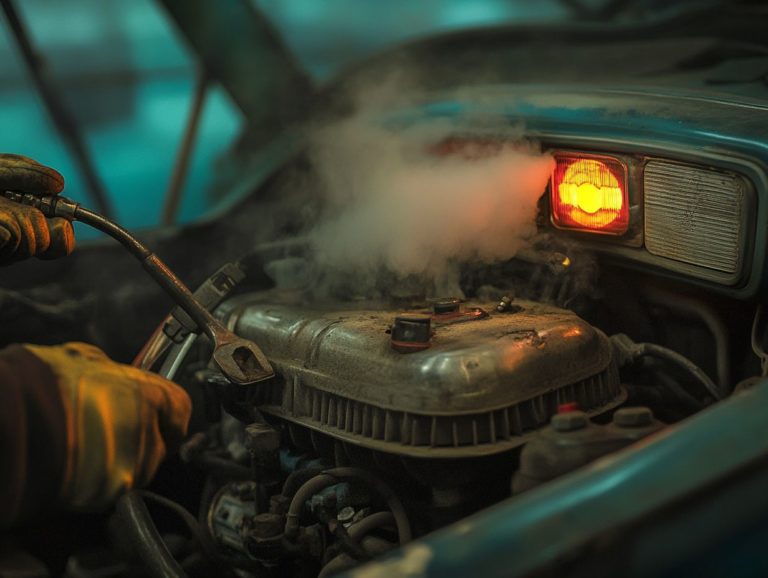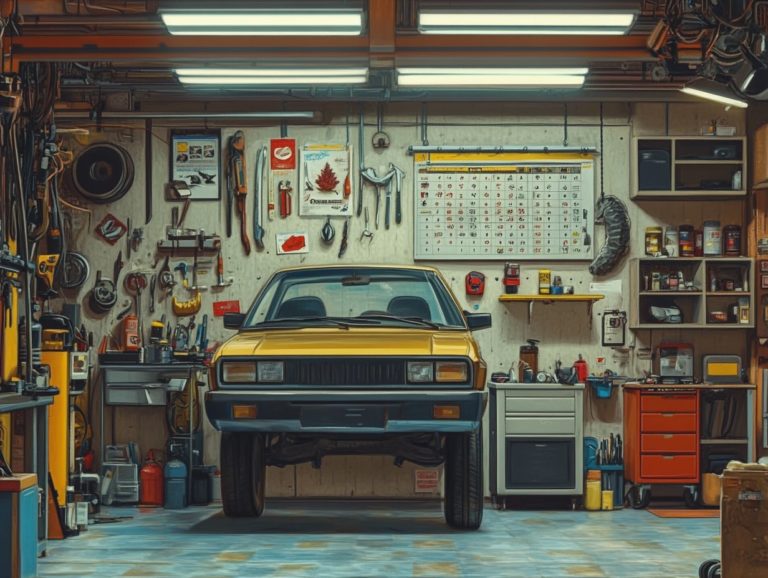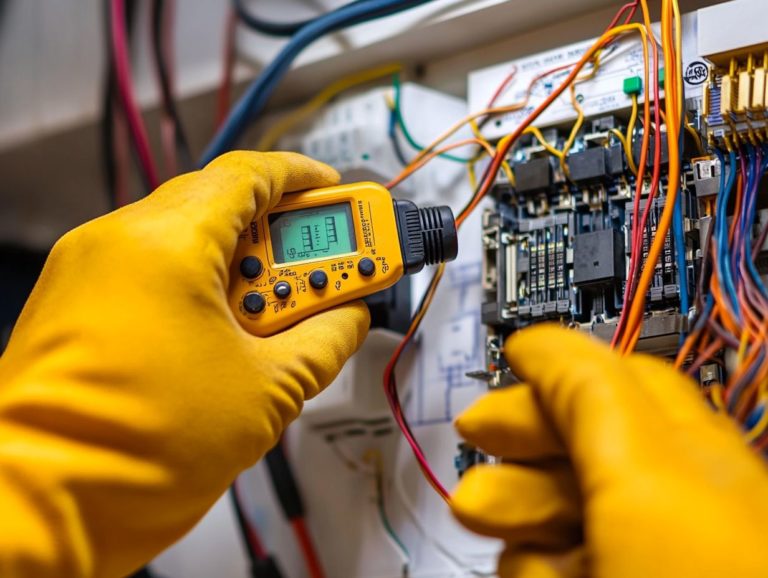What Should Be Included in a Pre-Purchase Inspection?
When embarking on one of life s most significant investments be it a home, a vehicle, or any major asset it s essential that you fully understand what you re getting yourself into.
Pre-purchase inspections act as your safety net, revealing potential issues before you finalize the deal.
This article delves into the intricacies of pre-purchase inspections, guiding you on what to examine, how to spot common problems, and strategies for negotiating based on your discoveries.
By the end, you will be armed with the knowledge necessary to make informed decisions that safeguard your investment.
Contents
- Key Takeaways:
- The Importance of Pre-Purchase Inspections
- What to Look for During a Pre-Purchase Inspection
- Common Issues Found During Pre-Purchase Inspections
- How to Choose a Qualified Inspector
- Tips for Negotiating Based on Inspection Results
- Frequently Asked Questions
- What Should Be Included in a Pre-Purchase Inspection?
- What are the benefits of a pre-purchase inspection?
- Who should perform a pre-purchase inspection?
- What areas should be covered in a pre-purchase inspection?
- What should I expect to receive after a pre-purchase inspection?
- Is a pre-purchase inspection necessary for new construction?
Key Takeaways:
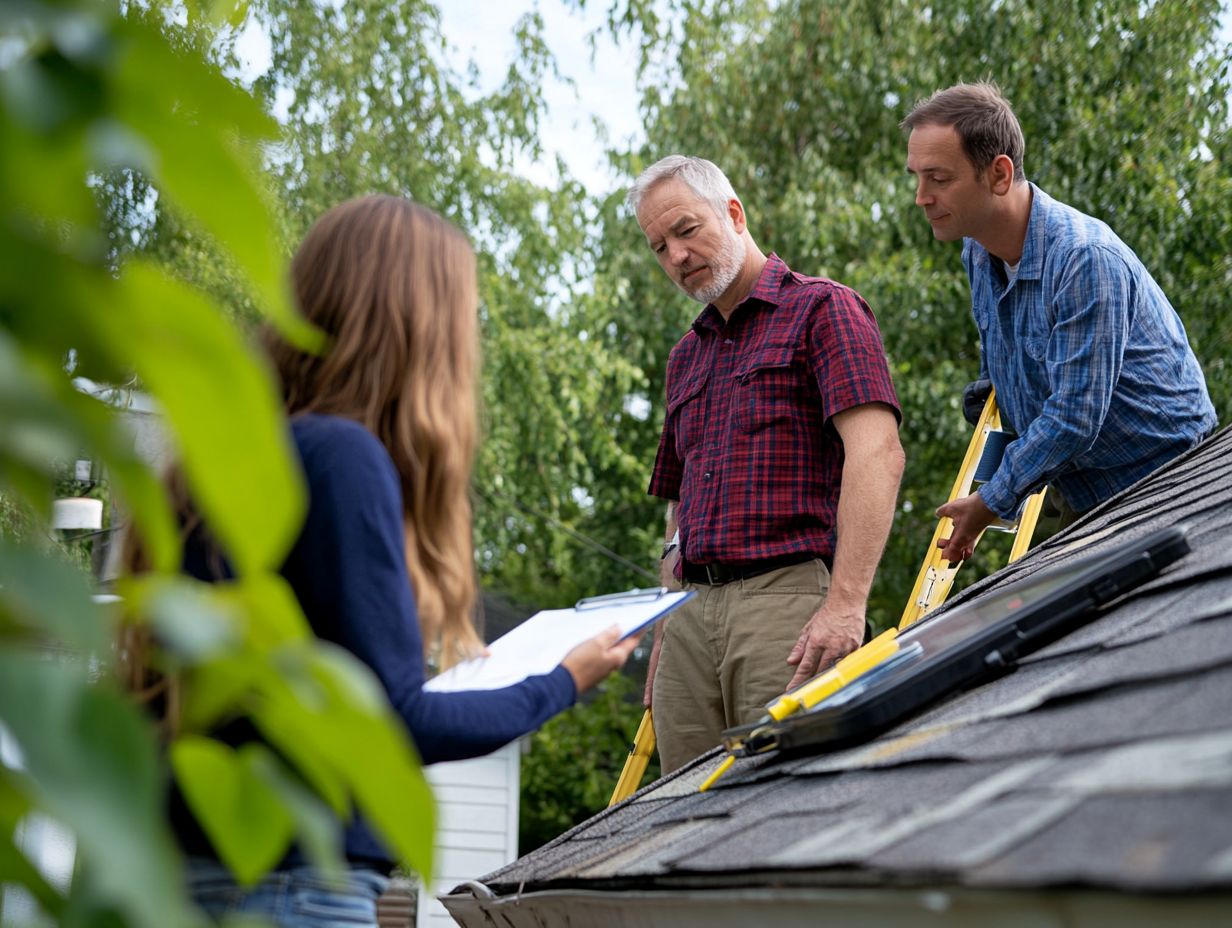
- Conducting a pre-purchase inspection is crucial before buying a property to avoid potential hidden problems and ensure a fair purchase.
- During an inspection, thoroughly check the exterior, interior, and mechanical aspects of the property for any structural, mechanical, or safety issues.
- Hiring a qualified inspector with proper credentials and asking the right questions can help you make an informed decision and negotiate a better deal based on the inspection findings.
The Importance of Pre-Purchase Inspections
When contemplating the purchase of a used vehicle, getting a pre-purchase inspection is not just advisable; it s essential.
This step offers invaluable insights into the car s condition, performance, and any hidden issues that might elude a casual glance. A comprehensive inspection conducted by a qualified mechanic can reveal mechanical problems, structural damage, and safety concerns, enabling you to make an informed decision and sidestep potentially costly repairs down the line.
When you invest in a pre-purchase car inspection, you gain a clearer understanding of the vehicle s history and reliability before you seal the deal.
Why You Should Conduct a Pre-Purchase Inspection
Conducting a pre-purchase inspection is absolutely vital for ensuring your safety and the reliability of a used vehicle. It helps you avoid hidden mechanical problems and confirms the car’s overall condition.
This crucial step can save you from expensive repairs that might pop up shortly after you make the purchase. By engaging a skilled mechanic for a thorough examination, you gain valuable insights into important parts like the engine, brakes, and tires elements that often slip under the radar during a routine test drive.
A proper inspection guarantees that all safety features are functioning correctly, significantly lowering your risk of accidents. This proactive approach protects your money and gives you peace of mind, making the entire car-buying experience much more enjoyable.
What to Look for During a Pre-Purchase Inspection
During a pre-purchase inspection, you should take the time to thoroughly assess various aspects of the vehicle. Pay close attention to the exterior, interior, and mechanical components, as this meticulous evaluation will help you determine the overall condition and uncover any potential issues that might affect performance or safety.
Exterior Inspection
The exterior inspection of a vehicle is essential for identifying any cosmetic damage or structural issues, such as dents, rust, and misaligned panels, which may indicate underlying problems or past accidents.
As you conduct this assessment, pay close attention to the paint condition for any scratches or fading that might suggest an inconsistent service history. The tires deserve your scrutiny as well; check for uneven wear, as this could point to alignment issues that may affect overall safety and handling.
Evaluating the bodywork as a whole ensures you aren t blindsided by hidden surprises like repairs made with filler to hide damage or signs of water damage that could undermine the vehicle s integrity. By focusing on these crucial aspects, you not only make a more informed purchasing decision but also gain insight into the vehicle’s long-term maintenance needs.
Interior Inspection

During an interior inspection, it’s crucial for you to assess the condition of the upholstery, dashboard, and electrical systems. This ensures that all features are operational and helps you avoid any unexpected, costly repairs down the line.
This evaluation goes beyond merely spotting visible wear and tear; it dives into the functionality of essential components like lighting and entertainment systems. Pay attention to how these features integrate into the vehicle s overall comfort and aesthetics.
A well-maintained interior elevates your driving experience and boosts the vehicle’s overall value, making thorough inspections vital for both your current enjoyment and future resale opportunities.
When everything operates seamlessly together, it enhances comfort and instills confidence in the vehicle’s reliability.
Mechanical Inspection
A mechanical inspection centers around critical components such as the engine, transmission, and parts that transfer power from the engine to the wheels. This ensures they operate at peak performance and reveals any hidden mechanical issues that could jeopardize safety and longevity.
This comprehensive evaluation typically includes checks on the braking system, suspension components, and electrical systems, each of which plays an essential role in the vehicle’s overall performance.
It’s vital for you to enlist a qualified mechanic for these inspections, as their expertise enables accurate diagnosis and the early identification of potential failures before they escalate into costly repairs.
Regular assessments extend the life of your vehicle and enhance safety for all road users, ultimately ensuring reliability whether you’re navigating daily commutes or embarking on longer journeys.
Common Issues Found During Pre-Purchase Inspections
Pre-purchase inspections can uncover issues that dramatically impact both safety and value. Don’t skip this critical step! These inspections can reveal structural problems, mechanical failures, and various safety concerns that you should be mindful of as a buyer.
Structural Problems
Structural issues in a vehicle, like frame damage, can have serious implications for your safety, performance, and resale value. It s absolutely essential to identify them during a pre-purchase inspection.
Neglecting these problems can lead to costly repairs in the future and compromise the vehicle’s long-term reliability. Common structural issues you might encounter include misaligned frames, rust or corrosion, and weakened joints. These not only impact the overall integrity of the vehicle but can also jeopardize your comfort and driving experience.
By spotting these faults early, you enable yourself to make informed decisions based on comprehensive inspection reports. Addressing potential repairs before finalizing your purchase can ultimately save you money and prevent dangerous situations on the road, highlighting the critical importance of professional inspections in the vehicle-buying journey.
Mechanical Issues
Mechanical issues, especially with the engine and transmission, can dramatically impact your vehicle’s performance and lead to expensive repairs. That s why it s essential to have them thoroughly checked during a pre-purchase inspection.
Neglecting these critical components can result in lower fuel efficiency, sluggish acceleration, and the risk of breakdowns that could jeopardize your safety on the road. Existing problems often create a domino effect; what starts as a minor issue can escalate into major repairs, significantly increasing your total cost of ownership.
As a prospective buyer, recognizing the importance of mechanical inspections is vital. Not only do they uncover hidden deficiencies, but they also give you an edge in negotiations. Addressing these concerns early on can lead to substantial savings and ensure a more reliable driving experience.
Safety Concerns

Safety concerns from faulty electrical systems, ineffective brakes, or compromised suspensions pose serious risks. Identifying these issues during a pre-purchase inspection is crucial.
The significance of addressing these safety issues is immense. They directly impact the vehicle s reliability and performance.
Critical systems like airbags, anti-lock brakes, and the steering mechanism play a vital role in ensuring your safety on the road. By engaging in a thorough inspection process that uncovers potential hazards, you not only shield yourself from accidents but also enhance the longevity of the vehicle.
Prioritizing these evaluations enables you to make informed decisions. This ultimately leads to safer journeys and minimizes your liability.
How to Choose a Qualified Inspector
Selecting a qualified inspector is key to a thorough vehicle check-up. Look for ASE-certified professionals with a strong reputation in the automotive industry.
This step will empower you to make the best decision for your future!
Qualifications to Look for
When choosing an inspector for your pre-purchase inspection, prioritize candidates with ASE certification and substantial experience. ASE certification (Automotive Service Excellence) shows the inspector is qualified and dedicated to industry standards.
An experienced inspector offers invaluable insights that go beyond basic evaluations. They can uncover potential hidden issues that might lead to significant future expenses.
Seek specific qualifications such as I-CAR certification for collision repair or manufacturer-specific training. These emphasize an inspector’s expertise in niche areas.
Selecting a well-rounded inspector gives you peace of mind. You can then make informed decisions based on a thorough assessment of the vehicle’s condition.
Questions to Ask
Before hiring an inspector, ask the right questions about their experience and the services they offer. This ensures you receive a thorough evaluation.
Establishing a transparent inspection process protects your investment. Understanding the inspector’s background can reveal their expertise in spotting issues that might not be immediately apparent.
Ask about the specific services they provide. This will help you determine if they align with your unique needs.
Encourage open communication by presenting key questions about their certifications, how they handle unexpected findings, and whether they offer detailed reports. These inquiries will provide insight into their commitment to delivering an honest assessment.
Tips for Negotiating Based on Inspection Results
Negotiating based on inspection results can profoundly influence the final price and terms of your agreement. A clear understanding of the vehicle s condition enables you to present compelling arguments for a more favorable deal.
How to Use Inspection Findings in Negotiations
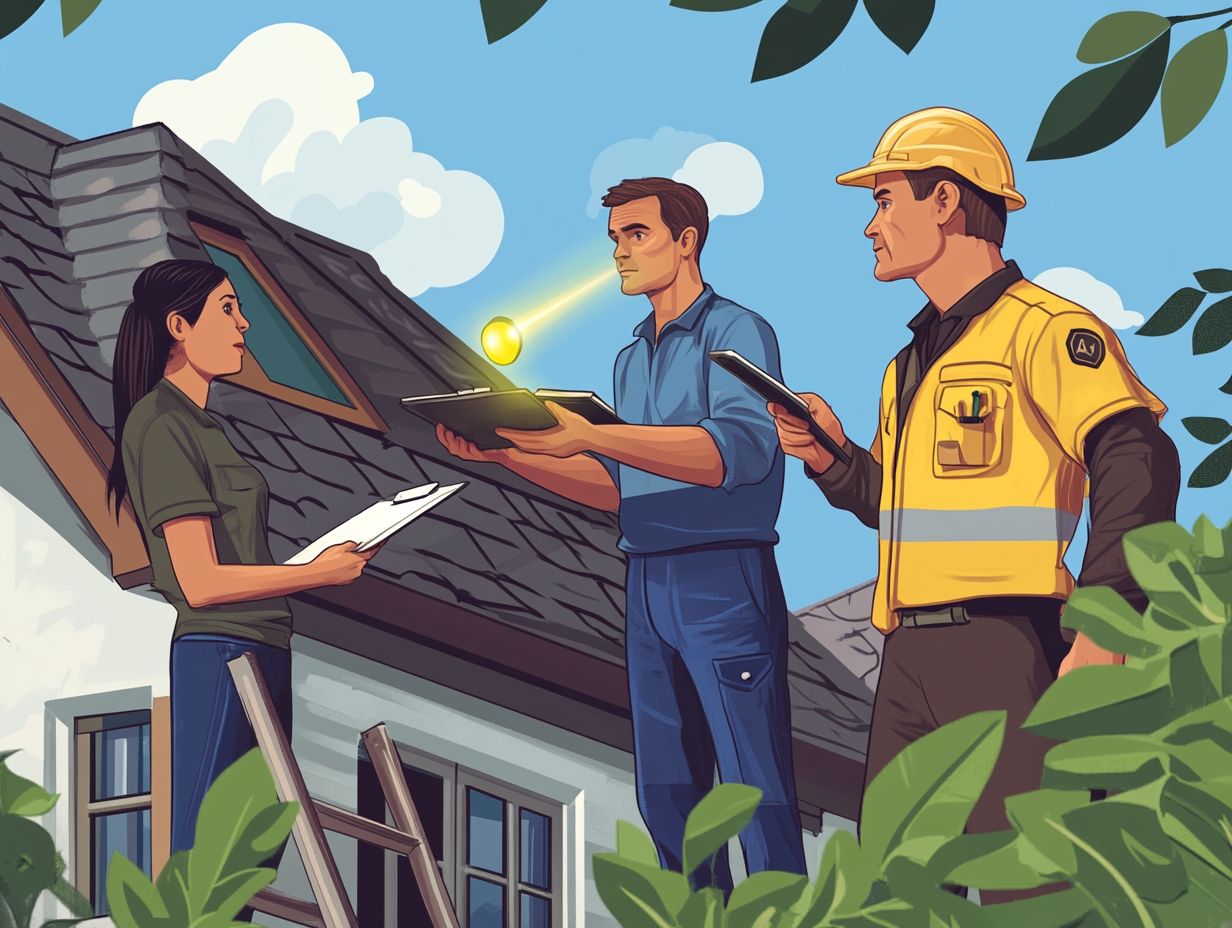
Utilizing inspection findings during negotiations enables you to advocate for a lower price or request necessary repairs. This ensures you don t overpay for a used vehicle that requires additional work.
Presenting documented issues identified during the inspection process, such as mechanical issues or cosmetic damages, effectively highlights the vehicle’s true condition. This strategic approach provides substantial evidence to support your case and positions you as an informed and serious negotiator.
Use these findings as pivotal talking points. Leverage them to underscore potential future costs you may incur. Integrate negotiation techniques like setting a starting price or employing empathetic communication to guide discussions toward a mutually beneficial outcome.
Approach the discussion with confidence and clarity. This fosters a better atmosphere for reaching a fair agreement.
Frequently Asked Questions
What Should Be Included in a Pre-Purchase Inspection?
A pre-purchase inspection is a crucial step in buying a new property, whether it’s a house, car, or other big-ticket item. Here’s what you need to know about what should be included.
What are the benefits of a pre-purchase inspection?
A pre-purchase inspection can save you from making a costly mistake by uncovering potential issues before you buy. It also gives you negotiating power to ask for repairs or a lower price based on the findings.
Who should perform a pre-purchase inspection?
A professional and licensed inspector with experience in the specific type of property should conduct the inspection. This ensures that all aspects of the property are thoroughly evaluated and reported on.
What areas should be covered in a pre-purchase inspection?
A comprehensive pre-purchase inspection should cover the exterior and interior of the property, including the roof, foundation, plumbing, electrical, HVAC, and additional features like pools or sprinkler systems. It should also include a termite and mold inspection.
What should I expect to receive after a pre-purchase inspection?
After the inspection is complete, you should receive a detailed report outlining any issues found, along with recommendations for repairs or further evaluations. The report should also include photos and notes from the inspector.
Is a pre-purchase inspection necessary for new construction?
While new construction may seem like it wouldn’t need a pre-purchase inspection, it’s still important to have one done. It can uncover any construction defects or code violations that may not be easily noticeable to an untrained eye.
Don’t risk your money! Get that inspection done.
Ready to negotiate for the best deal? Make sure you have your inspection findings ready!

